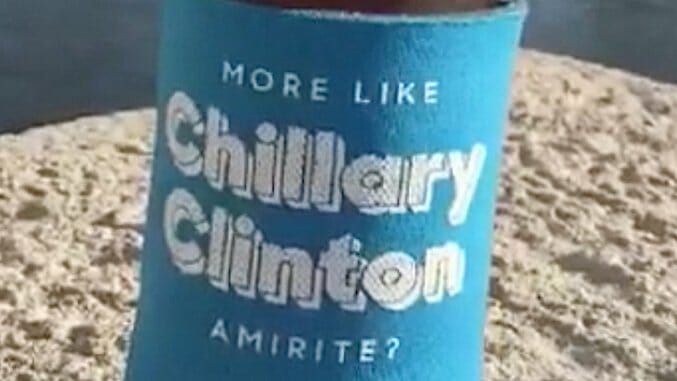Note to Hillary: Millennial Votes Can’t Be Won With Condescension and Pandering

From endorsements by the cast of The West Wing to an open letter signed by participants of the original Star Trek series, the Clinton campaign seems to have the millennial bloc covered. It isn’t enough to peddle an official ‘Yass, Hillary!’ t-shirt to, arguably, one of the most disenfranchised generations, or ask them to explain how their students loans make them feel in 3 emojis or fewer—No. It’s time to bring out the big, pop-culture filled guns. But can the Clinton campaign’s millennial problem be solved with celebrity endorsements and forced neologisms that make the hair on the hair on the back of your neck quiver?
One of the more recent Quinnipiac University polls showed that Clinton earned support from just 31 percent of likely voters under the age of 35, while Trump pulled in 26 percent. The very idea that millennials will refuse to vote for Clinton, thereby ‘spoiling’ her coronation, has antagonized even the most hardened pundits and human think piece generators.
Yet despite the young voter bloc being, at least, a necessary safety measure against a right wing populist whose presidential campaign has overwhelmingly been scoffed at and combatted by way of late night punchlines, the overwhelming attitude of Clinton surrogates has been one of patronization rather than inclusivity and understanding. Apparently the way to a millennial’s poll booth is through tickets to a Katy Perry performance and incessant scolding. It isn’t enough that millennials are viewed as being ungrateful, spoiled and ignorant as to political machinations; they’re also framed as purists who are after more than what’s reasonable—like universal healthcare and debt-free college education.
In pursuit of Obama’s overzealous supporters, many of whom were millennials, Clinton has made it part of her stage act to refer to the president as though he were her muse. And yet what the Obama administration has done, specifically in terms of healthcare, has not gone far enough because there now exists a thriving crowd-funding industry that has taken place of what should be single-payer healthcare. Not only that, but according to a report published by the Congressional Budget Office in March of this year, the number of people under the age of 65 who were uninsured in the United States in 2015 was a staggering 35 million. Clinton’s suggested piecemeal road towards healthcare-for-all is the wrong move, according to physician and writer Adam Gaffney:
“[W]hile the incremental approach might sound appealing, staying on the track set out by the ACA [Affordable Care Act] would be the wrong move. As other countries show, trying to achieve equitable, universal health care within the confines of a private insurance system is bound to result in disappointment…A single-payer national health program must therefore remain a central goal for progressives and the Left. Placating the private insurance industry isn’t a price we can afford to pay.”
-

-

-

-

-

-

-

-

-

-

-

-

-

-

-

-

-

-

-

-

-

-

-

-

-

-

-

-

-

-

-

-

-

-

-

-

-

-

-

-








































